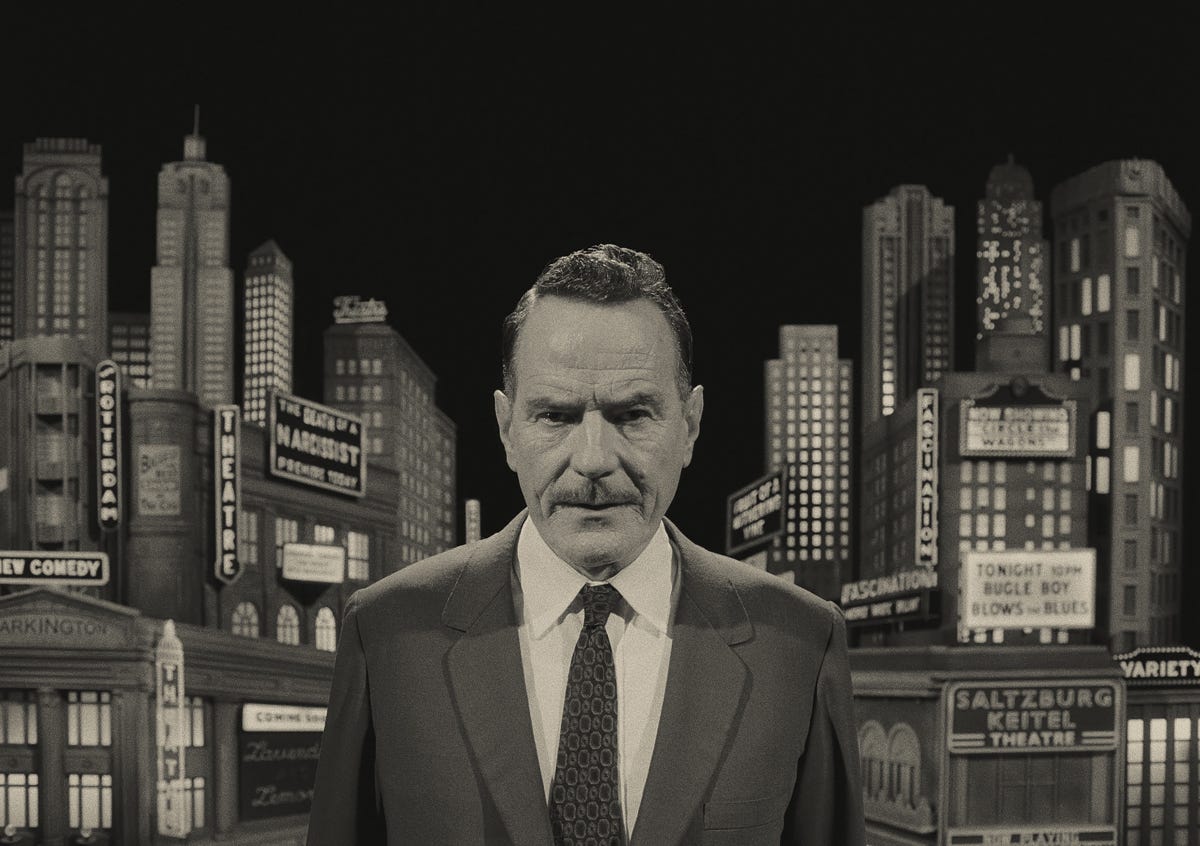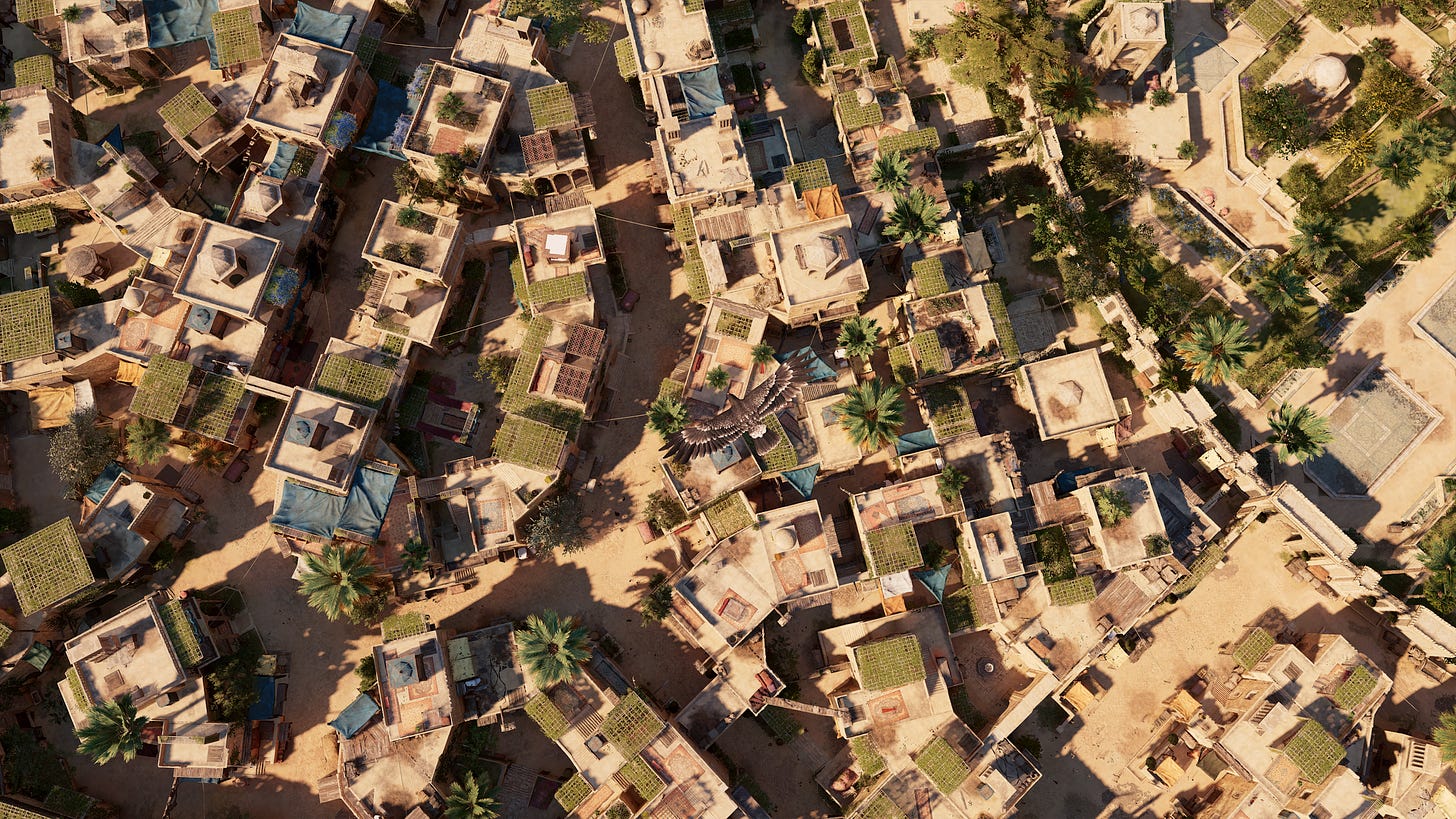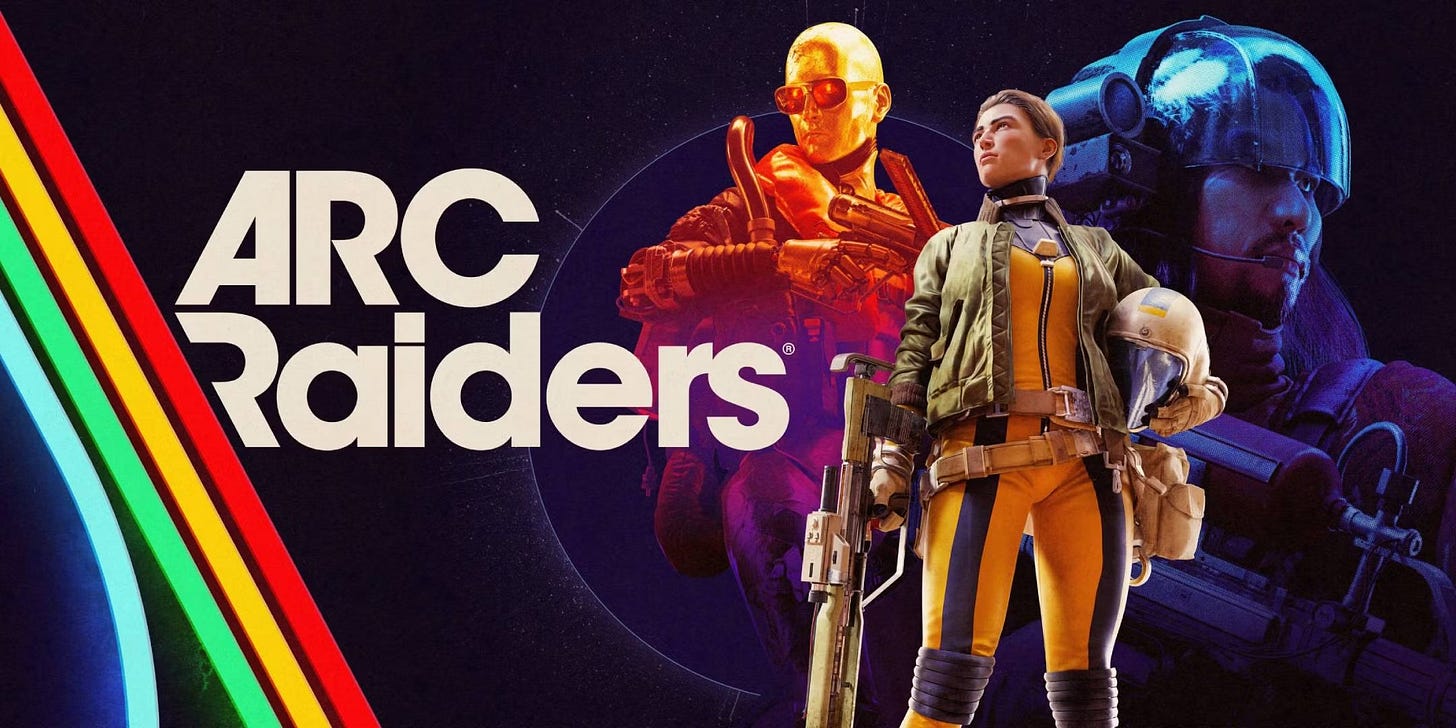I think this is important work still…
It’s been a long year. Here’s to finally shaking the dust loose and getting back into the groove.
I watched Asteroid City at the Hi-Pointe theater here in Saint Louis. It’s an old, extremely kitschy cinema with stiff chairs bolted onto what feels like, and very well could be, linoleum tile floors. Of the destinations to watch a Wes Anderson movie, it certainly ranks high on the list of “most authentic viewing experiences”. I came out of that screening pretty confident I intuited its message. Without beating around the bush, the movie positions a cadre of folks around an extra terrestrial event the perspiring of which locks them down in a small roadside town while the government investigates what happened. A man grieves his recently deceased wife while simultaneously falling for an actress in the bungalow next door. A kid experiences a coming of age due to being forced to stay in one place and deal with his emotions. But all of it is set to this backdrop of the government and, by extension and metaphor, the parents trying to discern what the meaning of this alien encounter means. And, by further extension, what *gestures wildly at the air* all this means. But I came away from the movie convinced the message was, in fact, it didn’t mean anything at all.
I remember listening to the other critics in the spill out, each of them pondering what the hell the movie they just watched was about and I couldn’t help but giggle a bit. They all seemed to miss the point. Asteroid City was specifically about how adults try so hard to make everything mean something, and in their pursuit, tend to overlook the experience of just…I don’t know…living? I wrote this in my review, a few people read it, maybe a few of them got it. But it wasn’t until a full two years later, when I came across a video essay by Thomas Flight, who’s work I had recently discovered I really enjoyed, I found validation. Thomas, in slightly different words, in the first three minutes of his video, says exactly what I was thinking. Asteroid City is about the happenstance of life, unyielding and rarely keen to define its actions and inactions, and how its characters, and then the viewers, attempt to make sense of it all.
I remember whooping out loud, slapping my knee like a 70 year old uncle, and getting up to go smoke a cigarette. I didn’t finish the video for another several months. It was like a parent telling me they were proud of me. A voice of critique, a voice I have come to value deeply, validated my thoughts on something I felt strongly about, but lacked the community to hash out.
Fast forward then to last month, I am reading Doc Burford’s article “let’s reconsider how we talk about video games” and I’m hit by a familiar, but rarely encountered sensation. I have been teaching Game Design (Intro to- to be exact) at a local university for 4 years now, and just last year I got the opportunity to test out an experimental class. Experimental for the fact the school had never had a class of the like, not because I was approaching anything in some untread method. I called the class Media Critique, and my pitch was “what if we gave film studies students (who have a film studies class) and game students (who do not have a Games Studies class on account of the program’s leadership not seeing the “use?”) a place to hone their thoughts into coherent and worthwhile critique. It felt bold and revolutionary for the program, but not because it was either of those things. Instead, as I previously mentioned, it just felt like something the school wouldn’t really care about. I ran it as a Directed (or Independent) Study. Much to my surprise, the class filled quickly.

I spent a large amount of time, in the weeks the class was in session, breaking from my lesson plan to dig into several “whys” the class lofted up into the air. I’ve always found teaching to be akin to DM/GMing a tabletop roleplaying game. Meaning: you are only really valuable as a professor, insofar as your ability to make plans, read the tone and intention of the room, and adjust your plan to better tailor the experience to your players (students). But of all of those “whys”, the most important one, and the one we spent a whole week of class dissecting, was: Why is criticism important?”
I immediately answered, “it isn’t.” But not in the nihilistic and cynical way. In the goofy, corny, Dead Poet’s Society way. The way Ethan Hawke describes art. The way Madhu Raghavendra’s poem Artist states:
I don’t mind
being the non-essential.
Even a child takes
its mother for granted.
It does not run back
to its mother until it’s hurt.
Nobody first thinks of water
when they arrive
at an exquisite dinner party,
until they are choking.
I don’t mind
being the non-essential
knowing you will come looking
when things are broken
and nothing else works.
Art is non-essential
Until it is not.
It’s sappy and a bit silly and entirely corny, but I believe it. In a similar sense then, games criticism, or really criticism as a whole, lives in this constantly fluctuating state of necessity. Should you know what you like and know what you want, you will likely find little value in criticism about those things initially. I don’t read reviews on Assassin’s Creed games, for instance. However, the moment the game moves away from being perfunctory, criticism starts to eke in. Assassin’s Creed may not have been the best example for this, because I rarely have deeper thoughts about those games recently. But then again, back in 2023, when I started playing Mirage, On October 9th, I remember being unable to enjoy a game so focused on the beauty of Baghdad while the world was watching the start of the brutal Israeli response to events just days prior.
In that moment, Mirage became an exercise in exegesis. What the developers, years prior, couldn’t have known nor prepared for, now became the fulcrum on which the game balanced for me. It was obviously always intended to, in its design, act as a love letter to a land lost. Both to time and colonial violence. But with this new period of violence, so fresh and raw, it became a treatise of a people who merely wanted to exist and no longer could. No longer allowed to.
It took me 6 months to return to Mirage and I never really wrote about it, outside of this. And due to *gestures wildly* things, I didn’t read much criticism about the game centering the genocide in Gaza, save one.
But this, to me, begs the question: If not when it is most relevant to the conversation, then fucking when?
All of this tracks back, eventually, to Doc’s piece I mentioned earlier. I’ve struggled for years, attempting to be more consistent with my writing, but in the end consistency seems like chaff. Like my metronomic posting would be a bug-light for hundreds of readers to be drawn in and zapped by my musings. But Doc has helped me realize, it truly isn’t about me. Instead it’s about the relationship created between my thoughts and the readers. Everything I write is about helping somebody think about a game or film I have interacted with in a different way. That’s my endeavor, at the very least. And I agree with Doc’s thesis, if I am understanding it correctly, that as a journalist your job isn’t to center yourself in the body of your work but rather the art you are discussing. It’s causing me to trace my steps backwards through the work I have done, making me investigate my motivations.
One of the nice things about writing without a dedicated editor is the freedom I am permitted to ramble and prattle in different directions. I try to contain my thoughts to a single highway, a more efficient form of travel when trying to go a long distance. But I also value taking side roads, allowing for distractions and digressions. I hope it doesn’t make my work unreadable. Just occasionally slightly less fluid. But in moments like this, I find myself wishing I had someone slapping my knuckles with a ruler, making me focus.
The effect of coming across Thomas Flight’s video about Asteroid City and Doc’s article, is one in the same. It’s a kind of compound realization. I should trust my gut. I have a hard time using my experience writing, for myself, for more than a decade, as a means of giving my voice any credibility or authority. But that’s not the point. I don’t desire credibility or authority. Instead I want to draw your eyes away from the “mechanical grittiness” of a game and to the choices the developers made in making combat feel mechanical and gritty. Do those choices resonate with the story they are telling? Less “this is why game feel good” and more “why is it important, as a player, to feel good right now.”
That is the springboard into more deep conversation. As I play Assassin’s Creed Shadows, eating up the setting and scenery, bathing myself with the stealth Rubik’s cube at every camp and castle, I ask myself, “Should I feel so good killing so many people?” Is it a question with a finite answer? No. Is it worth conversation? Maybe!
Clint Hocking’s conceptualization of Ludonarrative dissonance back in the late 2000s made a lot of people sigh and turn away from their computers. Was the assertion that Nathan Drake was a monster because of the number of people he killed — making his lovable rogue persona dissonant — taken seriously by anyone? I’m not sure I have the faculties to dig into the data to answer the question with any “authority.” But I know Naughty Dog immediately responded by making The Last of Us, a game in which the main character is irrevocably a monster. A game where the child in your care constantly remarks on the brutality you enact as a player.
Shadows seems at least interested in fielding questions about the morality of its player characters. As the game progresses Naoe and Yasuke debate the ramifications of their bloodshed. Debate whether they are just the same as those they put under their blades. I don’t know if Shadows has the chops or intention (returning after completing the game; it did not) to actually address the question, but the utterance alone is intriguing to me.
Perhaps then, I am finding my voice. A process I once believed I had long accomplished. I yearn for asking questions and causing my friend group to groan. I enjoy making people open their brains a bit more when interacting with film and games. Being called a buzzkill because I make you think about the consequences of any number of actions in a given game actually feeds me. Similarly, I have found myself debating the mechanical manipulation of live service games like Destiny and Marvel SNAP and THE FINALS (must use all caps!!!). The conversation between intrinsic and extrinsic motivation is fascinating to me. Are you going to be annoyed and maybe have a hard time loving your manufactured slop? Maybe. Does this in me create regret? Never.
This is why I do this, why it’s important to do this. So we can ask ourselves questions without easy answers on the route to understanding the power of our art. As I knock the dust off of all my internal computers and remember how it feels to write I have a list of titles from the past year I haven’t talked about. And the year prior. I can’t believe I didn’t take a moment to write about Jusant. I need to tally my thoughts on Citizen Sleeper 2. I need to replay and then talk about why Herdling was so good. Because art is important. Because talking about art is important. And with ARC Raiders literally releasing tomorrow, it’s time to start drumming up the brainworks. I know I am going to have a lot to say about what amazing work Embark has done.
So until you hear from me again, see you Topside.





